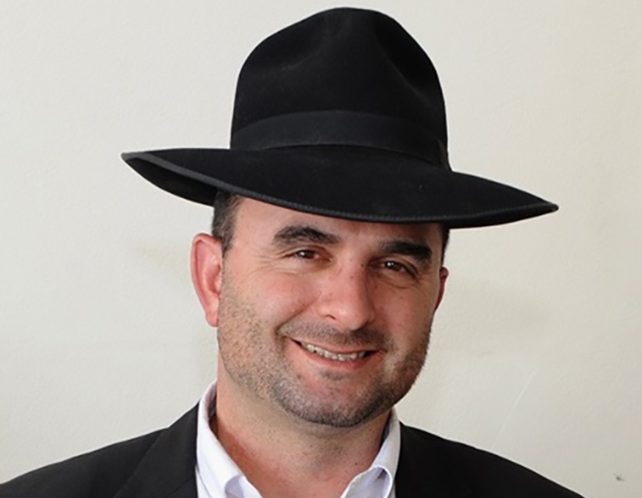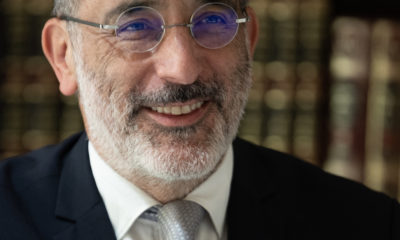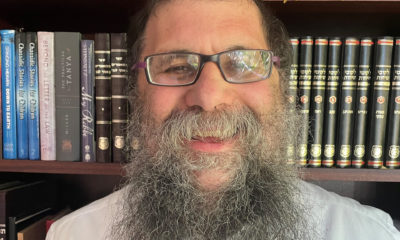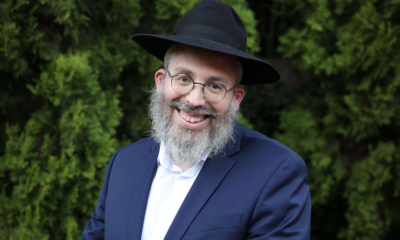
Religion

The great marathon of destiny
One could find fewer more appropriate metaphors for the story of the Jewish people than that of a long and rigorous marathon in which the baton is passed from runner to runner as each generation concludes its distance and a new stretch begins.
The marathon of the Jewish people started 3 533 years ago, and is destined to continue onto the finish line – the coming of Moshiach. Then, great rewards and accolades will be meted out for the incredible feat of seeing through this longest and hardest marathon in all of history, and a new epoch will begin.
Scholars, historians, and philosophers are all at a loss as to how to explain the continuity that is the marathon of the Jewish people. They are baffled at how extraordinary it is that the baton hasn’t been dropped, and how the run through history continues.
Even more remarkable is how at intermittent stages in the race, other runners of supreme physique and athletic prowess joined in the marathon and, bragging of their might and muscle and domination of the track, drummed in the message that they would easily be the victors. Many of these tried forcibly to cut down the Jew and eliminate him from the marathon using all kinds of threat, menace, and brutal and savage attack. But these attempts proved futile. History shows that each of these formidable runners eventually fell out of the marathon while the Jew continued.
There were those runners who entered the race who realised that they couldn’t forcibly eliminate the irrepressible Jew out of the race, and who decided to use guile. Their method was to lure him with promises of bounty and pleasure, with showers of love and adoration, and with offers of prestige and prominence. “Just leave the marathon, drop the baton, you’ll have it so good!” But the Jew waved them off, and said, “Thanks, but no thanks.”
And so, the saga continued for millennia, and continues today. The baton hasn’t been dropped. The Jew’s march to the finish line is uninterrupted.
So, what’s the unique formula of the Jew that has enabled this seemingly inexplicable outcome of endurance and continuity?
We will touch on one fundamental component – Pesach. The birth of the Jewish people was unique among nations in history. They came to be a people not of their own gathering and becoming, but were gathered and became, as no other, by the Hand and doing of G-d. Their appointment as a people took place amidst great wonders and miracles. It was done in full view, out in public, open for all to see. It happened in spite of the efforts of the mightiest power of the day’s attempts to prevent it. Pharaoh and Egypt didn’t want to let this slave people go, and tried to defy its happening. But G-d’s people had been chosen, and so Pharaoh and Egypt crumbled, falling like a house of cards.
From being an oppressed, broken, and trapped bunch of slaves, this people was raised up by the Hand of the almighty Himself, taken to Him to be a people, and elevated to the highest heavens to become “a kingdom of priests and a holy nation”.
Once a year, on the very same date that this birth into nationhood took place, the Jew sits down and v’higadta l’vincha – he tells the story to his children of how they became a people. He speaks of the uniqueness of their marathon run, and the imperative that the baton is never dropped. He tells of how they were forged in the miraculous, and of their destiny being intertwined with the very purpose of creation.
The Pesach seder is the annual event that deals with the story of the birth of the Jew in particular detail. The message at the seder comes from a runner in the marathon that received the baton when he/she was young, and is now passing it on through the seder. In doing so, they are strengthened in their continued stretch of the race, re-affirming their commitment to their part in the marathon, as well as preparing the next generation to do their part.
To be clear though, the retelling of this event, which essentially summons the Jew to recognise his mission and destiny, cannot suffice with only annual gathering and telling. We are bidden to “remember the exodus from Egypt all the days of your life”. It’s mentioned in our daily prayers. We also recite it twice a day in the Shema, morning and night.
The conscientious athlete knows that in order to challenge for victory – and especially if it’s the coveted championship race – he needs to be in prime condition and must keep focus and commitment throughout. He cannot afford to drop the baton on his watch. So, too, we cannot rely only on an annual retelling of our peoples’ founding and this incredible start to the cosmic marathon. Rather, we need to “remember the exodus from Egypt all the days of your life”.
So as to the question, what’s the Jew’s unique formula that has enabled this seemingly inexplicable outcome of endurance and continuity? One vital component of it is, indeed, the Pesach seder, but perhaps an even more important component is carrying the seder and the message of this birth of our people into the year ahead so that the stretch of the marathon that’s run each day is done with fresh knowledge, renewed pride, and clear and immediate conviction. Then, we can be sure that the baton will be held firmly and passed on assuredly, reaching all the way to the finish line with the coming of Moshiach.
- Ilan Herrmann is the rabbi of Soul Workout shul, publisher of ‘Soul Sport’ magazine, and the founder of Soul Workout outreach organisation.










